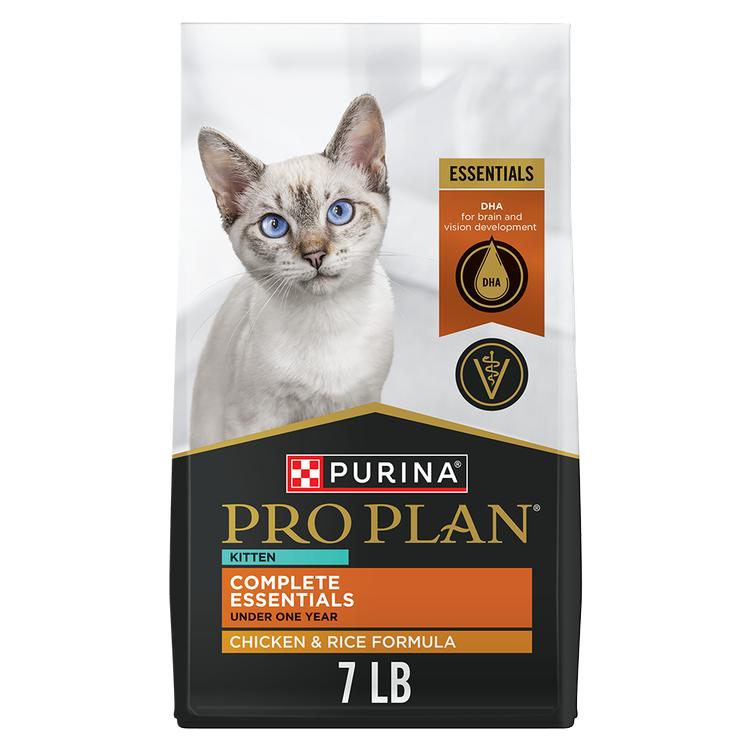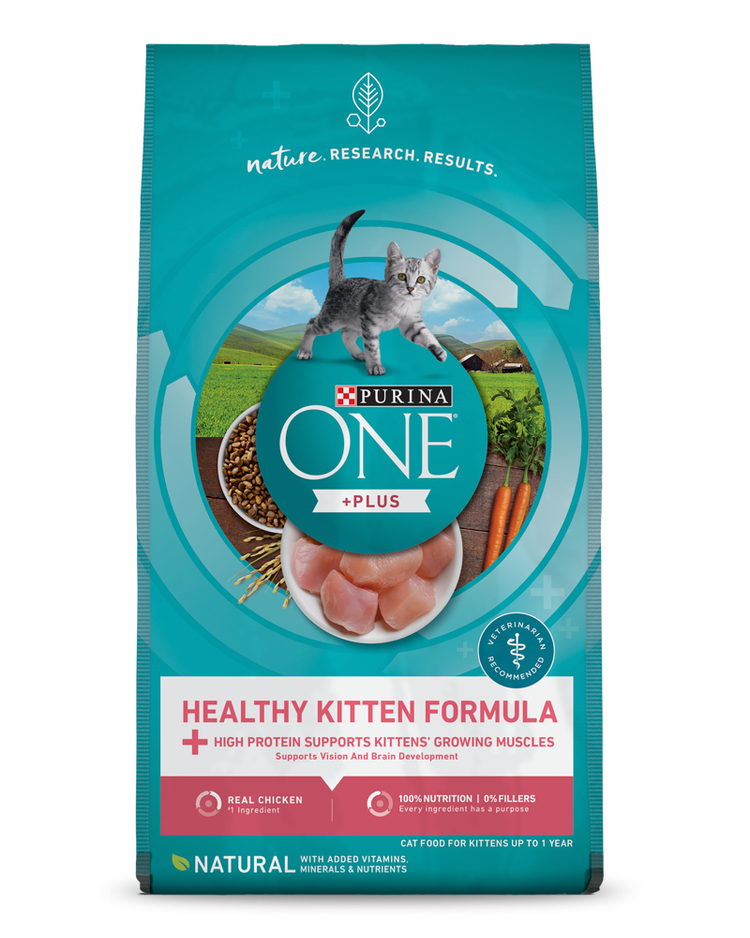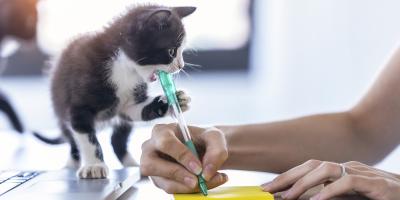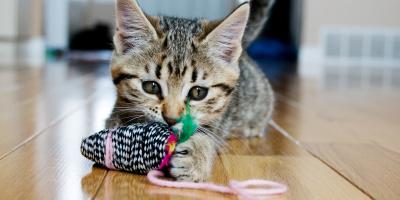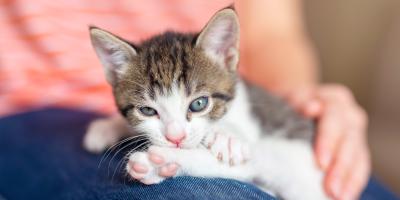Do Kittens Need Special Food? Kitten Nutrition Requirements

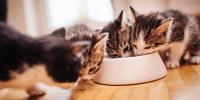
Yes, kittens do need a special food. Kitten food is essential during the first year of life to support growth and development.
Large breed cats, like the Maine Coon, need kitten food for 18 months to 2 years because they take longer to reach maturity.
Kittens are playful, curious and full of energy. They need a complete and balanced diet to support their energy and explorations during this time.
Kitten Nutritional Requirements
Kitten food is different from cat food in many ways. The dry kibble itself is smaller so it’s easier for tiny, adorable mouths to eat.
The nutritional content is also different. Kittens have different nutritional requirements than adult cats because they have more energy and are also growing and developing at rapid rates.
Kitten food has more calories and higher levels of certain nutrients. Some of these nutrients include:
- Protein: As carnivores, cats need more protein than dogs. Kittens, however, need even more protein, and more essential amino acids such as arginine, lysine and methionine than adult cats to support their rapid growth and development.
- Taurine and Choline: Like adult cats, kittens need sufficient daily intake of taurine and choline.
- Fat: Kittens need more essential fatty acids to support their rapid growth and development.
- Calcium and Phosphorus: Kittens need more calcium and phosphorus than adult cats to support growth and development of their bones and teeth.
- DHA: The omega-3 fatty acid DHA is important for brain and vision development.
- Vitamins and Minerals: Cats need adequate daily intake of vitamins and minerals, but kittens need more magnesium, copper, iodine and vitamin A than adult cats.
Should Kittens Drink Milk?
From birth to three to four weeks of age, kittens need their mother’s milk (or a milk replacement). That satisfies all their nutritional needs during that time.
Once a kitten is weaned from milk at six to eight weeks, she should get all her nutrition from kitten food. Cows’ milk, goats’ milk and other sources of dairy alone are not complete and balanced and should not be given to kittens.
Can Kittens Eat Human Food?
As with milk, human foods are not complete and balanced and won’t provide a kitten with all the nutrients she needs. Although there are a few foods that are safe, such as cooked salmon or cooked eggs, you don’t want to feed her human foods.
How Many Calories Should a Kitten Eat Per Day?
As kittens grow and become more active, their daily caloric needs increase. You’ll need to increase your kitten’s daily calories based on her age and weight to best support her growth and development.
Pay close attention to the kitten feeding chart on the food label and consult your veterinarian with any questions regarding how much to feed your kitten.
Quality nutrition in kittenhood provides the foundation for adult cats to live long, healthy lives.
For more tips on kitten nutrition, transitioning to adult cat food and more, visit our Pet Expertise page.

Be Rewarded for Your Purina Purchases
Earn and redeem points for Purina products with myPurina app.

